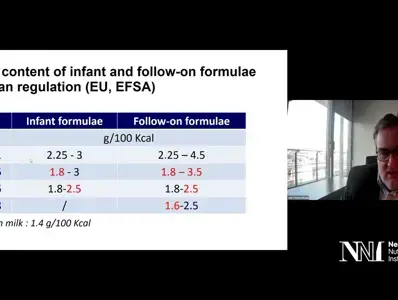Video
Protein levels and intake in early life and its relationship with growth and risk of NCDs
Growth & Development
Obesity
Presented at
9th International Conference on Nutrition and Growth
